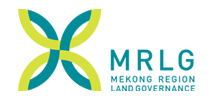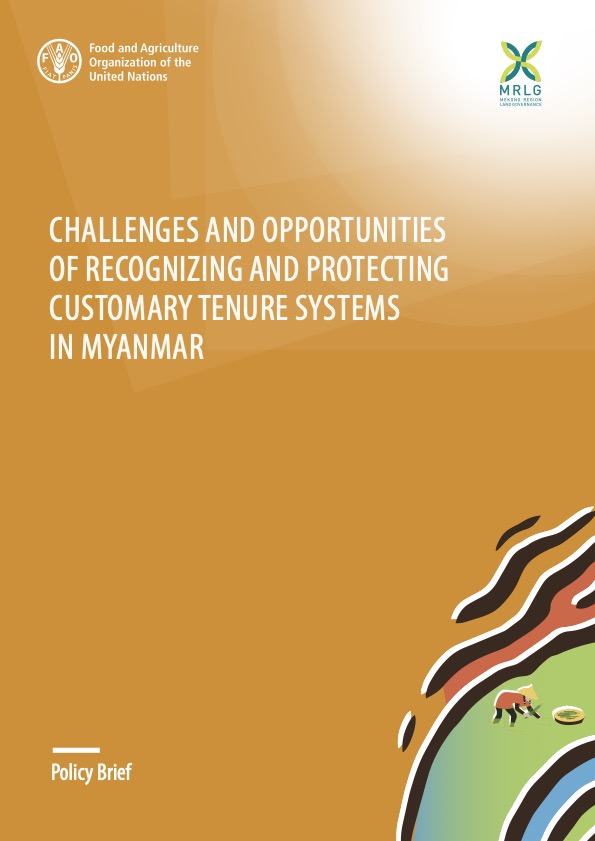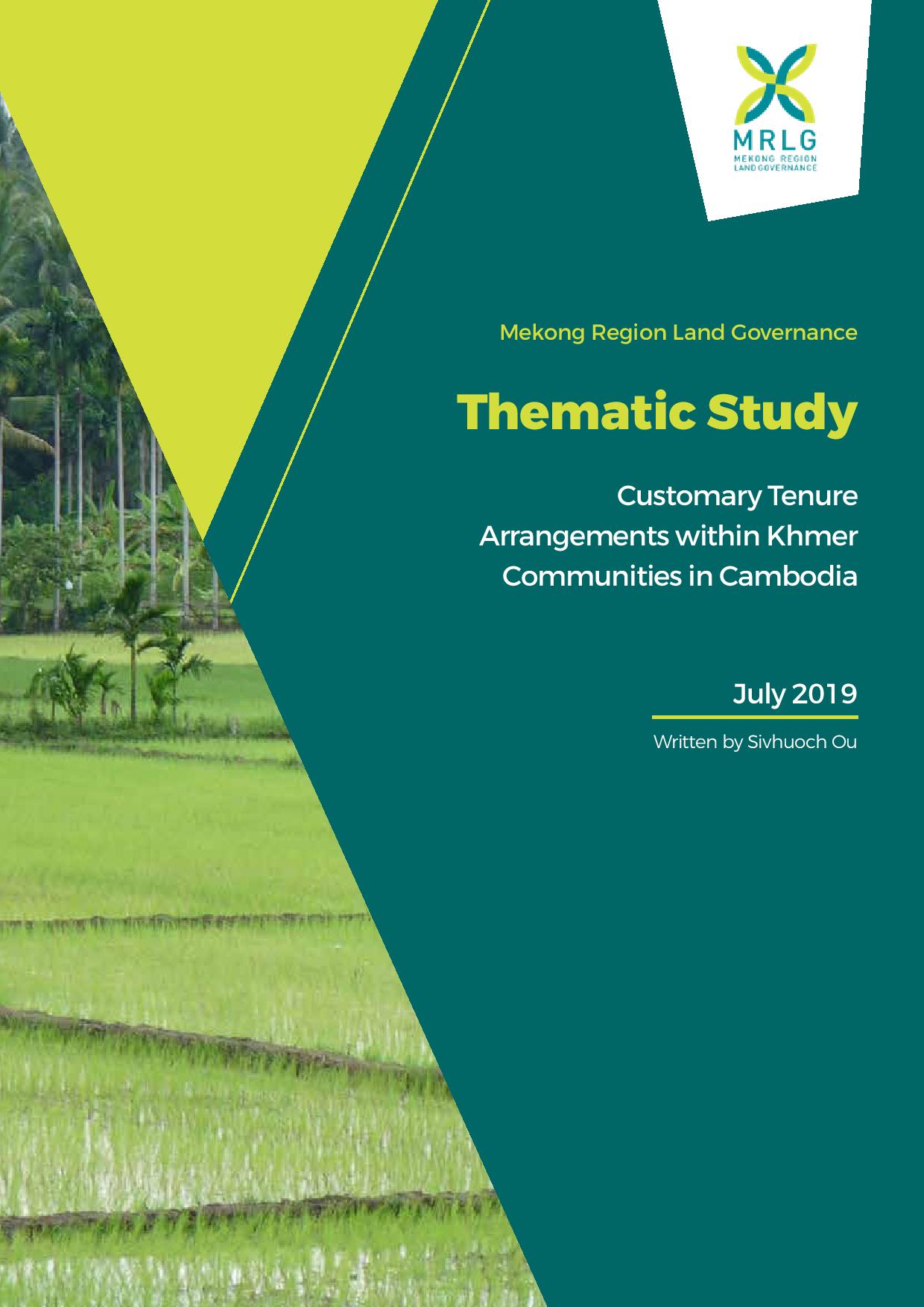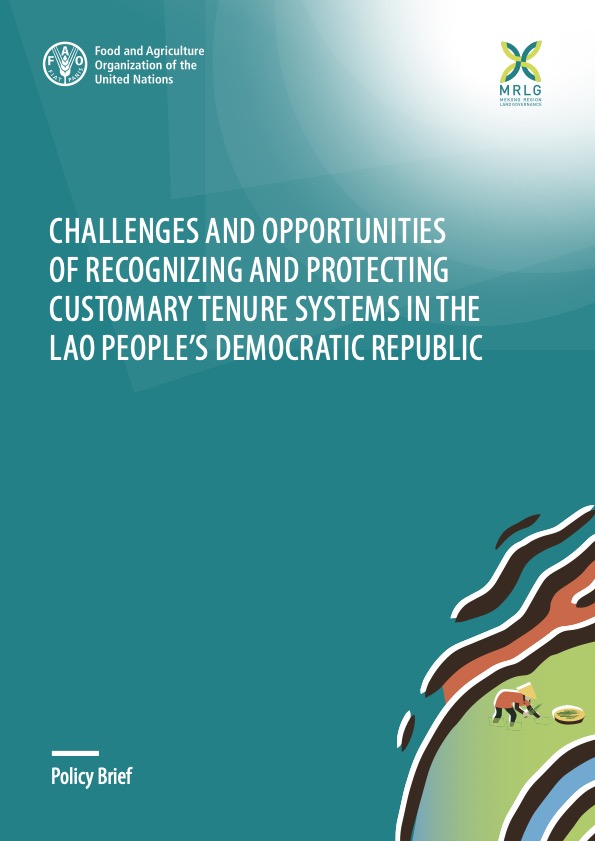Location
Project Description
Land governance is at the center of development challenges in Cambodia, Laos, Myanmar and Vietnam. Governments are revising land policies and practices in order to face these challenges. The project aims to (i) assist the emergence of more favorable policies and practices for securing the rights and access of family farmers to land and natural resources; and (ii) to strengthen the effectiveness of concerned stakeholders through learning, alliance building and regional cooperation.
The MLRG project is based in Laos, with local offices in three other countries: Cambodia, Myanmar, and Vietnam. It supports a wide range of activities (training, exchanges, case studies, focused research, documentation, workshops and seminars) at local, national and regional levels.
The MRLG can support initiatives through three component windows, the first is a learning and advocacy ongoing activity platform supported by National Facilitators in each country. The second two are funded through our Grant Facility open to all stakeholders based on demand and proposals prepared. A short term and immediate response window is the Quick Disbursement Fund (QDF). The second longer term and competitive proposal process is the Innovation Fund (IF). The learning and advocacy activity platform prepared on an annual basis in consultation with stakeholders to organize information collection, analysis, and dissemination, and for horizontal learning and structured learning visits, coaching and pairing, training and organizational strengthening, at the national and regional level.
Members:
Resources
Displaying 21 - 25 of 110Challenges and opportunities of recognizing and protecting customary tenure systems in Myanmar
This policy brief was developed in order to enable a meaningful engagement and policy dialogue with government institutions and other relevant stakeholders about challenges and opportunities related to recognizing and protecting customary tenure in the Republic of the Union of Myanmar.
Customary Tenure Arrangements within Khmer Communities in Cambodia
A common misconception about CT systems in Cambodia is that it is confined to indigenous communities in the peripheral uplands of Cambodia and does not exist in their Khmer counterparts. In response, this research compares related studies on customary tenure in Khmer communities, and describes the evolution of customary tenure within them, the different categories of potential resources governed under customary tenure, and the governance regimes of those resources. It then proposes three practical cases/communities for further field-based documentation.
Challenges and opportunities of recognizing and protecting customary tenure systems in the Lao People’s Democratic Republic
This policy brief was developed in order to enable a meaningful engagement and policy dialogue with government institutions and other relevant stakeholders about challenges and opportunities related to the recognition of customary tenure in the Lao People’s Democratic Republic. Customary tenure is understood to be the local rules, institutions and practices governing land, fisheries and forests that have, over time and use, gained social legitimacy and become embedded in the fabric of a society.
State of Land in the Mekong Region Photo Story
Objectives of this photo story are to collate updated data and information to identify and describe key issues and processes revolving around land in the Mekong region and to provide a basis for constructive dialogue and collaborative decision-making with different actors to address these issues.
State of Land in the Mekong Region
The Mekong region – Cambodia, Lao PDR, Myanmar, Thailand, and Vietnam – is in the midst of profound social and environmental change. Despite rapid urbanization, the region remains predominantly rural. More than 60 per cent of its population live in rural areas, and the vast majority of these people are engaged in agriculture. Due to rapid growth of its agricultural sector, the Mekong region has become a global centre of production and trade for commodities such as rubber, rice, cassava, wood, sugar cane, and palm oil.






